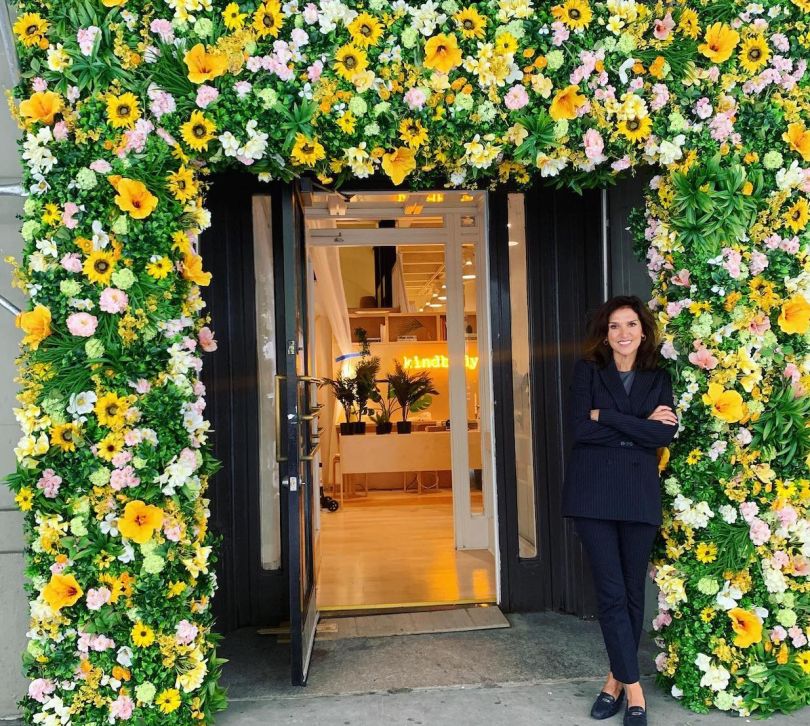
If there were any doubts about New York’s position as one of the world’s leading hubs of digital health innovation, this last year has certainly erased them.
A recent report put out by the NYC Health Business Leaders networking organization found that healthtech companies nationwide landed nearly $15 billion in new funding the first half of 2021, and $5.2 billion of that went to healthtech companies in NYC specifically — meaning the Big Apple got about 30 percent of that pie. And 2021 has just gotten stronger with time. In Q2 alone, 62 NYC-based companies raised $2.8 billion, surpassing Q1 by 16 percent. Eight of those local startups received mega-rounds of $100 million or more, accounting for 60 percent of the total.
Interestingly, many of those mega-rounds were healthtech companies headed by women. Cityblock, a healthcare provider for marginalized populations headed by Toyin Ajayi, closed on a $400M Series D back in September, its second nine-digit round of the year, bringing its valuation to nearly $6 billion. Meanwhile, Calibrate, a weight-loss startup headed by Isabelle Kenyon, raised a $100 million Series B in August, along with Kate Ryder’s Maven Clinic, which became the first unicorn dedicated to women’s and family health after raising a $110 million Series D. And then there’s Tia, a digital health company for women co-founded by Felicity Yost and Carolyn Witte, which pulled in a $100 million Series B in September.
If you drill down even more, you’ll find that many of these newly backed companies are not only created by women, they’re also created for women, catering to their specific health needs. Known as femtech, this industry appears to be one of the healthtech space’s latest it girls, with some experts projecting it’ll be worth more than a trillion dollars in the next five years.
Of course this surge in capital for women’s healthcare has not just come out of the blue. Bunny Ellerin, the co-founder and CEO of NYC Health Business Leaders, says interest has been “bubbling for years,” but the Covid-19 pandemic was the “defining moment.”
“It unleashed this need and recognition that so many parts of the healthcare system are broken,” she told Built In. “Those of us who have been in it for a long time knew that, but now it became evident to a much wider group of people, including investors.”

Funding the Next Big Idea
Although the sun seems to be shining on femtech startups now, that was not always the case. Gina Bartasi, a longtime NYC entrepreneur and founder of women’s health and fertility startup Kindbody, says the healthtech scene in this city — especially for women — has “changed dramatically” over the years.
“Ten years ago it was really, really challenging for women to raise money — almost impossible,” Bartasi told Built In, adding that this is mainly because, historically speaking, venture capital firms consisted of only men. Now, she says the space is still “overwhelmingly male,” but women are beginning to write the checks too. Incidentally, this has made it “much, much easier to raise money as a female founder today,” she said.
In fact, a recent report published by PitchBook found that, as of last September, more than 15 percent of the nation’s general partners are women, up almost three and a half percentage points from 2019. In NYC specifically, that number went from 11.8 percent to 16.8 percent in just one year.
While it may seem modest, this growth has massive potential beyond just the increase itself. Bartasi says the mere presence of a woman investor in the room ups a woman founder’s chances of getting funding significantly, which then has a ripple effect on what companies succeed and what industries get the most money going forward.
Today, no one is disputing that the total addressable market for women’s health and fertility solutions is multiple billions of dollars.”
“People invest in things they can relate to ... and if you’re talking to men about breast cancer or ovarian cancer or something that relates to femhealth or femtech, it’s really hard for them to understand the market opportunity,” Bartasi said. “Six years ago, people were like: ‘Are you sure it’s going to be big? Is there a big enough total addressable market?’ Today, no one is disputing that the total addressable market for women’s health and fertility solutions is multiple billions of dollars. And it’s growing really, really rapidly.”
Bartasi also credits her company before Kindbody, Progyny, as a key reason why women’s health has been getting heightened investor attention. The fertility benefits startup went public in 2019 and “absolutely crushed it,” she said, adding that its share price has jumped from $13 to $60. It is now worth about more than $5 billion.
“People like to put money to work where there’s been previous success,” she added. “Analysts sitting at a desk on Wall Street and around New York and Connecticut look to follow trajectories and trends, and so when you have this enormous run-up in the share price in the public markets, investors see that, they take note, and they’re looking for the next Progyny.”
Of course, Kindbody can be put in that camp. It provides in-person and virtual fertility, gynecology and other wellness services all over the country, and is continuing to grow thanks to the $62 million Series C it raised over the summer. There are also several other local up-and-comers that investors are excited about too.
There’s Health in Her HUE, a platform that connects Black women and women of color to culturally competent and sensitive healthcare providers. The young startup raised a $1 million pre-seed round earlier this year to tackle what founder Ashlee Wisdom says are long-standing false narratives in the healthcare industry about women of color. Health in Her Hue was also named among Built In NYC’s “The Future 5” list of startups to watch earlier this year.
“There are systemic issues within our healthcare system that have resulted in a lot of distrust among Black women and women of color because of how we’ve been historically treated,” Wisdom told Built In in an interview last October. “There’s this dismissal of our pain, people make assumptions about us when we do seek care. So there’s a lot of systemic issues within the system that has made this issue not just a one-off thing for a few women. It’s actually pretty standard.”
Another recent standout here in New York is Oova, which offers at-home fertility testing for women and was another Built In NYC’s “The Future 5” honoree in the fall. The startup was founded by data scientist Dr. Amy Divaraniya after she experienced some fertility difficulties of her own, and has since raised $1.2 million to serve a market that she says is “underserved.”
“Women are notorious for just sweeping their pain and their suffering under the rug and putting everybody else first,” Divaraniya told Built In, adding that this is mirrored in women’s health overall. “Fertility in general is just an issue that is dealt with in the privacy of your own bedroom. People don’t talk about it. You don’t even talk to your family about it.... I think now that companies like us are trying to raise awareness and bring about how common this issue really is, that’s helping to really show opportunity.”

‘We’re Just Scratching the Surface’
While it is a key element of women’s health, it’s also important to remember that women’s healthcare is not just about fertility, so that’s not the only area these femtech startups are tackling. Culver City-based Ritual offers supplements for women who aren’t getting the nutrition they need, Seattle-based Joylux guides women through menopause, and Portland-based Gabbi helps predict users’ risk for breast cancer.
In other words, women’s healthcare is multi-faceted and complicated, with a “long cycle,” as Ellerin, the CEO of NYC Health Business Leaders, puts it.
“There are so many parts to women’s healthcare, and I think we’re just scratching the surface,” she said, adding that there are opportunities for all kinds of segmentation based on race, age, income level, specific health areas and much more. “There’s plenty to unlock.”
You’re seeing more women entrepreneurs succeed in New York just because of the ecosystem here.”
Of course, the heightened interest in femtech startups isn’t only happening in New York. But Ellerin says there’s a level of “camaraderie” among the women entrepreneurs here that has led to the successes we’re seeing today. Bartasi feels the same way.
“After raising money in the Bay Area and raising money in New York, there’s a marked difference,” she said, citing the city’s talent pool, diversity in industries, and overall culture. “You’re seeing more women entrepreneurs succeed in New York just because of the ecosystem here. There’s more support among the venture community and among the professional community. Women are helping women in New York, I think, at a higher rate than potentially other markets.”
And this seems to be just the beginning for the femtech space. While the women’s health sector and women’s entrepreneurship certainly seem to be growing rapidly, Bartasi says there is still a long way to go, and plenty of opportunities for more entrepreneurs to jump in and make their mark.
“There’s a tremendous amount of room for us all to play,” Bartasi said. “We started at such a small number. So even if that doubles every year for the next five years, we’re still woefully behind. We have a lot of catching up to do.”




